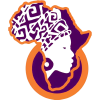As the world races toward the 2030 deadline for achieving the Sustainable Development Goals (SDGs), the United Nations has sounded a clear warning: gender equality remains the world’s “unfinished business” — and its “unfinished potential.”
In a new global report released by UN Women, the agency calls attention to the staggering costs of gender inequality — not only in social terms but also in economic potential lost.
According to the report, gender inequality in lifetime earnings represents an estimated US$160 trillion in lost global wealth. If parity were achieved, the world economy could gain as much as US$342 trillion by 2050.
We cannot continue to treat gender equality as optional. It is not a favor to women — it is a fundamental human right and an economic imperative.
The Private Sector and the Price of Inaction
The report, titled “Unfinished Business: Private Sector and Gender Equality,” stresses that while many companies have signed pledges to promote equality, most commitments remain voluntary, unmeasured, and weakly enforced.
Globally, women still represent just 39% of the workforce and earn about 20% less than men for similar work.
According to the report, progress has been modest and uneven, particularly in developing economies where women are concentrated in lower-paying, informal, or precarious jobs.
“Businesses that fail to invest in women are limiting their own growth,” said Sima Bahous, UN Women Executive Director. “Gender equality is not only good for women — it’s good for business.”
Nigeria: Laws on Paper, Gaps in Practice
In Nigeria, gender equality remains a stunted work in progress.
Despite having ratified major international treaties such as CEDAW and the African Charter on Women’s Rights, and despite adopting a National Gender Policy (2021–2026), only about 66.7% of the legal frameworks needed for full gender equality are currently in place.
Yet, female representation in national leadership is strikingly low: just 3.9% of the seats in Nigeria’s parliament are occupied by women — one of the lowest figures in Africa.
The UN Women Progress Notes (2025) reveal that while policies exist, implementation and enforcement remain weak. Gender-based violence persists, and cultural barriers continue to limit women’s participation in decision-making, technology, and formal employment.
The Economic Reality
The 2025 gender data report shows that although 77% of Nigerian women are economically active, the vast majority — 87.9% — are in self-employment or informal work. Only about 12% hold wage-paying jobs while female unemployment stands at 6.2%, compared to 4.3% for men.
In education, the gap remains sharp: 34% of women have never attended formal school, compared to 22% of men, and only 13.7% of Nigerian women have education beyond secondary level.
Access to digital technology is also deeply unequal. Just 13% of women in Nigeria report ever using a computer, compared to 21% of men, limiting women’s ability to participate in the digital economy.
Violence and Social Norms
The battle against gender-based violence remains one of Nigeria’s toughest challenges.
Recent statistics show a disturbing increase in reported rape cases — from 29% in 2020 to 65% in 2022.
Almost half of Nigerian women (48%) still believe that wife-beating can be justified under certain circumstances.
Even though UN Women has supported six Nigerian states to develop State Action Plans to prevent violence against women and girls, nationwide enforcement and social change are still slow.
A Call to Action
The UN Women calls on governments and businesses to move beyond promises and turn commitments into measurable progress:
- Governments should enforce equal pay, workplace safety, and anti-discrimination laws.
- Businesses must embed gender equality into their core strategies — not as charity, but as smart economics.
- Partnerships across civil society, the private sector, and international organizations are needed to close data gaps and ensure accountability.
For Nigeria, this means translating the country’s gender policies into real outcomes — from more women in boardrooms and parliament to safer workplaces and digital inclusion.
Gender equality is not just about fairness. It is about unlocking the world’s greatest untapped resource — the power, creativity, and leadership of women.
UN Women
Gender equality remains the world’s unfinished business — and for Nigeria, it is the unfinished potential that could define its future prosperity.
However, woman must also be active, engaging and involves themselves politically.
James, Nkoyomabasi E.
Abuja, Nigeria.









